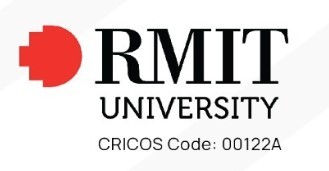
Bachelor of Engineering (Computer and Network Engineering) (Honours)/Bachelor of Computer Science


Overview
Duration
FULL-TIME 5 YEARS
FULL-TIME 5 YEARS
Scholarship
YES
YES
Fee
AU$47,520
AU$47,520
Intake
FEBRUARY, JULY
FEBRUARY, JULY
Overview
- Gain expertise in both the hardware and structure of computer systems, and the software used to control them.
- In RMIT's Bachelor of Engineering (Computer and Network Engineering) (Honours)/Bachelor of Computer Science, you’ll acquire extensive knowledge of computer system architecture, software design and the necessary skills required for developing embedded hardware and network-based computer systems.
- The computer science degree will develop a skill set that spans from theoretical and algorithmic foundations to cutting-edge developments in computing. You will gain deep knowledge of systems infrastructure, software methods and technologies, and application technologies.
- The computer and network engineering degree will develop your skills in the field of embedded systems or smart devices, as well as provide you with expertise in large scale network design and the implementation of digital communication networks that are vital for many big businesses.
- This double degree will also allow you to focus your skills on a range of topics, covering the Internet of Things (loT), software engineering, artificial Intelligence, sensor networks, high-performance parallel processing, real-time embedded systems, signal processing, programming and software development.
Inquire Now
Career
- Businesses will spend more on software and computer systems in the years to come. The demand for graduates with both computer engineering and computer science expertise is expected to be very high.
- Computer scientists and computer engineers design and build computer and communication networks, and work with both the hardware and structure of computer systems and the software controlling them.
- Graduates of the Bachelor of Engineering (Computer and Network Engineering) (Honours) / Bachelor of Computer Science can pursue a career in a range of industries including, aerospace, automotive, manufacturing, embedded systems, computing, resource, defence, and primary industries.
- Telecommunication operators such as Telstra, equipment manufacturers such as Cisco, and IT departments of all organisations employ computer network and systems engineers to carry out design, implementation, and maintenance tasks.
- Universities, research organisations and software development companies also need computer scientists and engineers to improve their computer and software technologies and products.
- Job opportunities exist with governments to improve defence, security and emergency services.
Entry requirements
- To study this course you will need to complete one of the following English proficiency tests:
- IELTS (Academic): minimum overall band of 6.5 (with no individual band below 6.0)
- TOEFL (Internet Based Test - IBT): minimum overall score of 79 (with minimum of 13 in Reading, 12 in Listening, 18 in Speaking and 21 in Writing)
- Pearson Test of English (Academic) (PTE (A)): minimum score of 58 (with no communication band less than 50)
- Cambridge English: Advanced (CAE): minimum of 176 with no less than 169 in any component.
Popular Courses
Start your journey with landmark today!
Find your perfect course
Answer a few questions and
our course matcher will do the rest
Head Office
Level 5, IT Plaza
Kamaladi, Kathmandu
Tel: +977 14542781, 9845566225
E-mail: info@landmarkedu.com
Kamaladi, Kathmandu
Tel: +977 14542781, 9845566225
E-mail: info@landmarkedu.com
Sydney office
Level 2/552 Princess Highway,
Rockdale, NSW 2216,
Tel: +61 415 122 814
Rockdale, NSW 2216,
Tel: +61 415 122 814
Branch office
Sahidchowk, Chitwan
Tel: 056-590825
Tel: 056-590825
Mahendrachowk, Biratnagar
Tel: 021-590828
Tel: 021-590828
Level 2, Milanchowk, Butwal, Rupandehi
Tel: 977-71-591694
Tel: 977-71-591694
© Landmark Education. All rights reserved.


